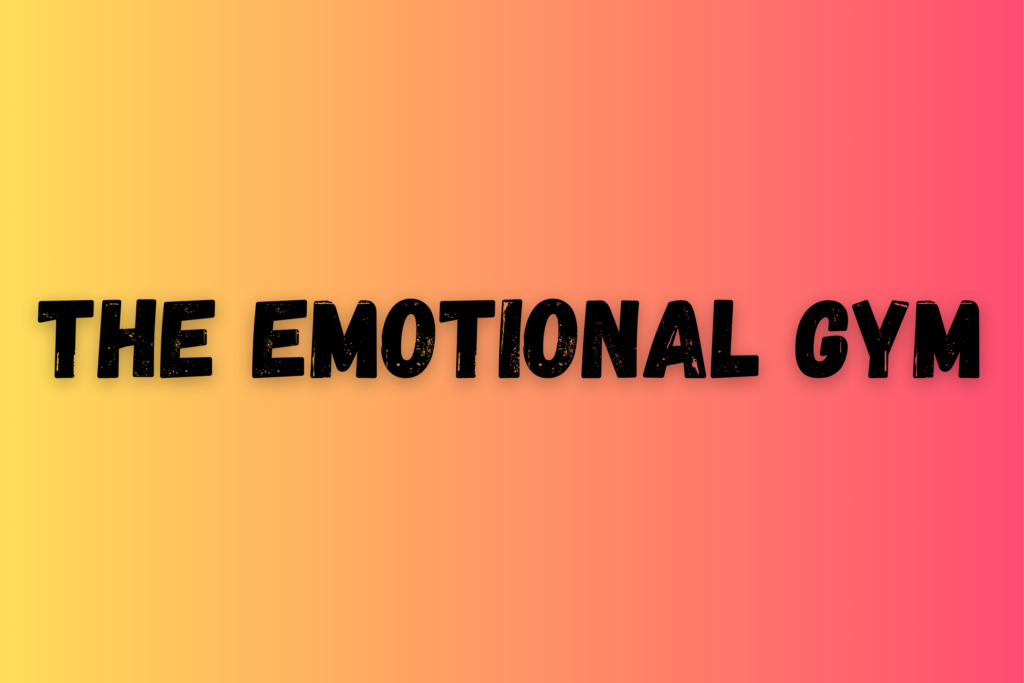 Many people think of therapy as something you turn to when life falls apart—after a breakup, during a major loss, or when anxiety or depression becomes unbearable. And while therapy is incredibly valuable in a crisis, that’s not the only time it can help. Like going to the gym, therapy is a space to build strength, increase flexibility, and take care of yourself before you’re overwhelmed.
Many people think of therapy as something you turn to when life falls apart—after a breakup, during a major loss, or when anxiety or depression becomes unbearable. And while therapy is incredibly valuable in a crisis, that’s not the only time it can help. Like going to the gym, therapy is a space to build strength, increase flexibility, and take care of yourself before you’re overwhelmed.
In the wise words of Lori Gottlieb, “therapy isn’t about fixing you. It’s about discovering what makes you whole.”
Why We Think Therapy Is Only for a Crisis (And Why That’s Limiting)
Despite more open conversations about mental health, many people still believe therapy is only for when things are “bad enough.” This belief is often shaped by cultural messaging or stigma that suggests seeking help is only valid when you’re falling apart. For example, clients often come in saying:
- “I should be able to handle this myself.”
- “It’s not that bad yet.”
- “Other people have it worse.”
But delaying help can mean letting stress, disconnection, or burnout build until it’s harder to manage. According to the 2021 Stress in America Survey by the APA, 48% of adults had considered therapy—but many postponed seeking help until symptoms became severe.
Therapy Is Emotional Training, Not Just Emotional Triage
Think of therapy like a training program—not just emergency care. Just as a personal trainer helps you build physical strength, a therapist helps you develop the emotional and relational skills that shape your everyday life.
These skills include:
- Emotional regulation
- Boundary setting
- Self-awareness
- Vulnerability and intimacy
- Communication and conflict resolution
Most of these abilities are shaped by childhood experiences, which means your emotional strengths—and struggles—are not entirely your fault. But they are within your power to understand and change. According to the Harvard Center on the Developing Child, early life shapes our lifelong ability to manage stress, form relationships, and adapt to challenges. Therapy can help fill in the gaps, offering new tools for adulthood.
The Long-Term Benefits: How Therapy Helps You Thrive
The benefits of therapy aren’t limited to symptom relief. Over time, therapy can transform how you relate to yourself and others. As your emotional awareness grows, so does your resilience—and your capacity to handle challenges without being thrown by them.
Therapy can also help you identify outdated narratives or self-sabotaging patterns that began in childhood. When you rewrite these internal scripts, you begin to trust yourself more. And that trust often leads to better communication, deeper relationships, and more joy.
A 10-year follow-up from the Helsinki Psychotherapy Study found that individuals who engaged in long-term psychodynamic therapy experienced greater reductions in psychiatric symptoms, improved work functioning, and higher remission rates compared to those in short-term or solution-focused therapies
What’s the Difference Between Crisis and Growth-Focused Therapy?
Therapy can serve different purposes depending on your needs. In a crisis, the focus is on immediate stabilization and support. But once that foundation is set, therapy can evolve into a space for deeper exploration—identity, purpose, intimacy, and self-actualization.
| Crisis-Focused | Growth-Focused |
| Safety & stability | Identity & purpose |
| Present-focused | Present and past |
| Short-term coping | Long-term transformation |
| Symptom reduction | Self-actualization |
Who Can Benefit from Therapy?
While therapy is useful in crisis, it can be just as powerful when you’re not in one. It’s for anyone looking to:
- Understand themselves better
- Navigate a life transition or loss
- Improve communication in relationships
- Question old habits or beliefs
- Reconnect to meaning, purpose, or joy
You don’t need a diagnosis. You don’t need to be falling apart. You just need a little curiosity and willingness to grow. The real change in therapy doesn’t just happen during the session—it happens in the days and weeks that follow, when you reflect, apply what you’ve learned, and practice new ways of showing up in your life.
You Don’t Need to Hit Rock Bottom to Start
You don’t have to wait until everything feels unmanageable to reach out. Like the gym, you can start therapy at any time, and it can be short-term or ongoing—whatever fits your life. It’s a space where you don’t have to be “bad enough” to deserve support.
If you’re wondering whether therapy is right for you, the answer might be simpler than you think: Do you want to feel more like yourself again—or get to know that self better?
If that resonates, we invite you to connect with one of our therapists here at Peacefulway Psychology for a free 15-minute consultation. Let’s talk about how therapy can support your emotional growth and help you live with more clarity, connection, and confidence.

